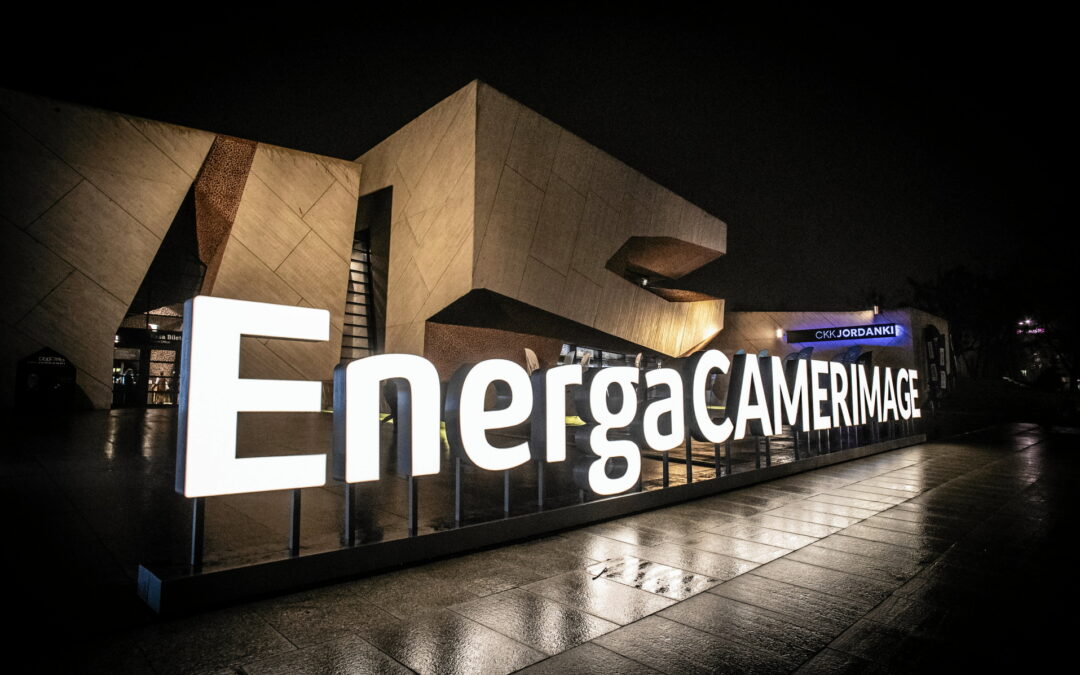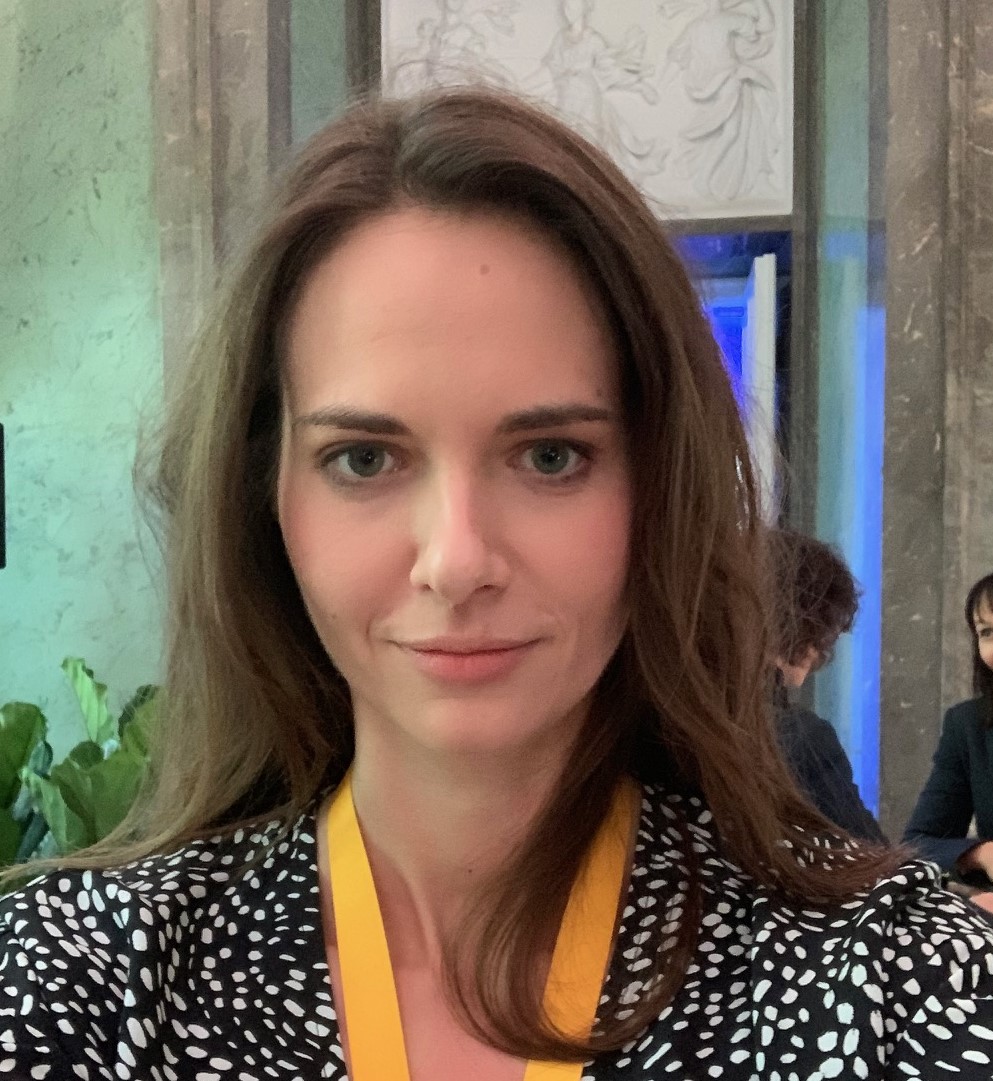Keep our news free from ads and paywalls by making a donation to support our work!

Notes from Poland is run by a small editorial team and is published by an independent, non-profit foundation that is funded through donations from our readers. We cannot do what we do without your support.
By Kamila Koronska
Dark clouds loomed over Poland’s Camerimage Film Festival this week after an article written by its director, Marek Żydowicz, about female cinematographers sparked accusations of sexism and prompted the withdrawal of high-profile guests.
The festival has largely managed to mitigate potential disruption, and the controversy has also prompted guests and attendees at the event this week to engage in discussions about parity and representation in the film industry.
Oscar-winning director Steve McQueen has withdrawn from Poland’s Camerimage Film Festival over what he says are “deeply offensive” remarks about female filmmakers by the event’s organiser.
The comments have been condemned as sexist by many in the industry https://t.co/poBW6NUlA7
— Notes from Poland 🇵🇱 (@notesfrompoland) November 14, 2024
The issue stemmed from what Żydowicz later described as an “unfortunate” choice of words – which he also claimed could have been “inaccurately translated” – in an op-ed he wrote for trade magazine Cinematography World. His article implied that he feared greater gender diversity in the film industry could dilute artistic quality.
The op-ed sparked a backlash that led to Oscar-winning director Steve McQueen withdrawing from the festival. French filmmaker Coralie Fargeat, who earlier this year won best screenplay at the Cannes Film Festival for her movie The Substance, also withdrew and pulled her film from screening at the festival.
However, Oscar-winning actor Cate Blanchett decided to remain involved as the chair of the festival’s main competition jury.
Director Coralie Fargeat has withdrawn her movie The Substance, starring Demi Moore, from the Camerimage Film Festival in Poland due to the "highly misogynistic and offensive words" about female filmmakers made by the event's organiser https://t.co/TmDknlMyEH
— Notes from Poland 🇵🇱 (@notesfrompoland) November 16, 2024
But this was not the end of the challenges for the festival. It also faced criticism for hosting the world premiere of Rust, the film that tragically saw the death of cinematographer Halyna Hutchins – a frequent participant at Camerimage – during production after she was shot by a live round fired from a prop gun being used by actor Alec Baldwin.
Hutchins’s mother, Olga Solovey, issued a statement explaining that she would not attend the festival, owing to Baldwin’s “refusal to apologise to me and his refusal to take responsibility for [Hutchins’s] death”. She also expressed concerns that the Hollywood actor would “unjustly profit” from the movie.
Żydowicz and the Camerimage team coordinated a response to avoid what the British Society of Cinematographers (BSC) warned would lead to “reputational damage”.
The festival director issued two statements to address the concerns raised by his article, with the second statement acknowledging more directly the anger and hurt his comments had caused within the film community.
The festival scheduled a new discussion panel on inclusion and diversity, featuring Cate Blanchett as well as the president of the BSC, which had earlier written an open letter to Żydowicz expressing that “conflating female cinematography with mediocrity is deeply sexist and is a sad illustration of a personal misogynistic viewpoint”.
During the panel, which took place on Tuesday, Blanchett condemned the “organic” and “unspoken” pathways in the film industry that seem to benefit men but fail to extend to women. Her participation in the event fulfilled her promise of engaging in “meaningful discussions”, which she had cited as a key reason for not boycotting the festival altogether.
She also highlighted the issue of marginalisation among underrepresented groups, whose creative work film producers can be reluctant to provide appropriate financing and exposure for, emphasising that this also applies to others in positions of power within the industry.
View this post on Instagram
On Thursday morning, Camerimage representatives and the Polish Society of Cinematographers met with almost 60 women’s and cinematography organisations “in order to gain a deeper understanding of the marginalised perspectives” and “to provide an opportunity to articulate the needs and expectations for the future of our industry”.
Women in Cinematography, a collective of filmmakers advocating for greater diversity in the industry, already had events scheduled in the festival programme before the controversy, but acknowledged the new additions.
“We’re seeing programmes that weren’t part of the festival before. That’s a change,” they noted. “They’ve also added some projects into the competition in the last days – female projects.”
Meanwhile, the festival organisers reiterated that they had not invited Baldwin to the Rust premiere and that they themselves would not host a post-screening Q&A .
Before the screening, a friend of Hutchins delivered an emotional speech explaining why completing the film was important for Hutchins and her family, both emotionally and financially. Hutchin’s memory was then observed with a moment of silence. The film’s creators opted to hold their own Q&A after the screening.
A minute of silence was held at the Rust world premiere for Halyna Hutchins who was fatally shot on the set of the film.
"Rust was going to change her life, but, instead, it took her life," says Halyna Hutchins's friend, Rachel Mason ⬇️ https://t.co/gtHB2frLiR pic.twitter.com/5msapi6qQ4
— Sky News (@SkyNews) November 21, 2024
The organisers’ responses appear to have mitigated the risk of reputational damage that the BSC warned of and have contributed to a cooperative atmosphere in which issues surrounding diversity and inclusion are being discussed.
This has in part been driven by the presence of Hollywood A-listers – such as Blanchett and five-time Oscar-winning director Alfonso Cuarón – and industry collectives, who are making a concerted effort to demonstrate how change can be driven through representation and proactive pressure.
When asked if she had been in touch with Żydowicz since the controversy, cinematographer Mandy Walker, who was nominated for an Oscar for her work on Elvis, said: “I have been talking to [the organisers] for a while. I want to help the industry make a change – not just for women, but for all underrepresented groups.”
To mark the release of Agnieszka Holland's "Green Border" in the US and UK, @isa_jcbs lists ten must-watch films by Polish women.
They include interwar avant-garde cinema, the world's first Holocaust film, and reflections on feminism https://t.co/9UhC7LmqxM
— Notes from Poland 🇵🇱 (@notesfrompoland) June 28, 2024
But Cate Blanchett’s presence has perhaps been the biggest gift to the festival. Her absence would have dealt a significant blow, given that the programme heavily features screenings of her work.
Additionally, the Centre of Contemporary Art in Toruń is concurrently hosting a special exhibition of Manifesto, a video installation in which Blanchett plays 13 different roles and which the actor helped inaugurate on Monday. Her attendance has helped ensure minimal disruption to the festival.
Since its inception in 1993, Camerimage – with its strong focus on cinematography and the art of filmmaking – has drawn renowned cinematographers and the Hollywood elite.
Over time, that presence has become a cornerstone of its marketing appeal. For cineastes, the festival offers a rare opportunity to see the latest productions and to attend seminars with cinema icons such as the directors Denis Villeneuve and David Lynch.
Cate Blanchett at the opening of Julian Rosefelt’s Manifesto, a multimedia show in which she plays 12 characters. At Camerimage. pic.twitter.com/aKTuAxLfHF
— Daniel Eagan (@Film_Legacy) November 17, 2024
The recent controversy has brought it unwanted attention to, exposing what some believe are deep-rooted issues with parity and diversity, both at the festival and in the broader industry.
That has cast a shadow over Poland’s most significant film festival on the global stage, yet Camerimage has in the past also appeared to diverge from the progressive values that are often associated with European art cinema and Hollywood.
Under Poland’s former government, led by the national-conservative Law and Justice (PiS) party, the festival continued to receive funding from the culture ministry, with high-ranking officials often attending its opening and closing ceremonies.
PiS also helped to commission the construction of the Camerimage Film Centre, the future of which is uncertain owing to doubts from the current government about its cost.
The issue of diversity and inclusion is one that Camerimage will need to address if it hopes to remain relevant. The topic of survival has kept resurfacing, especially during Cate Blanchett’s multiple appearances, where she has reiterated and rephrased the issue several times.
“I think it’s really important at this…inflection point for us as an industry and for us as a species, that we find what connects us…Homogeneity is the absolute enemy of art. And so the more diverse it is, the more exciting it is.”

Notes from Poland is run by a small editorial team and published by an independent, non-profit foundation that is funded through donations from our readers. We cannot do what we do without your support.
Main image credit: Roman Bosiacki / Agencja Wyborcza.pl




















